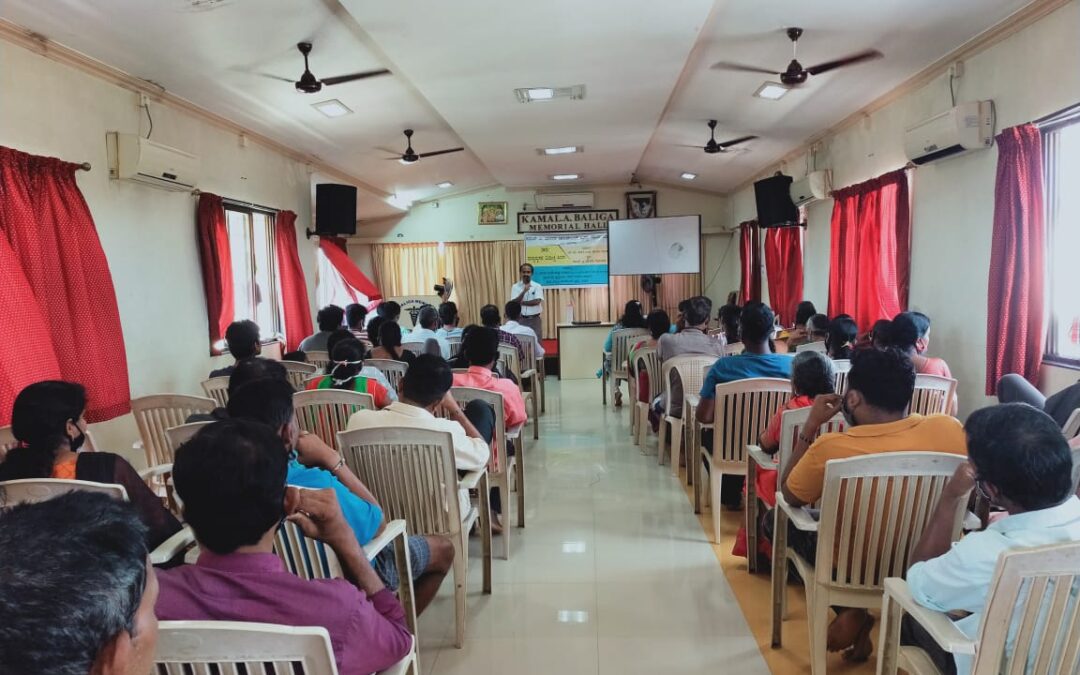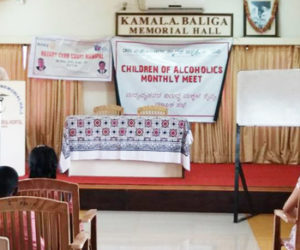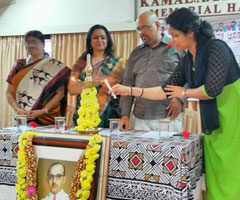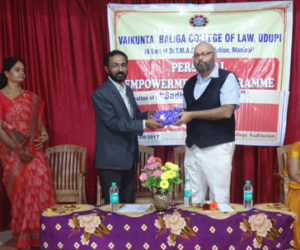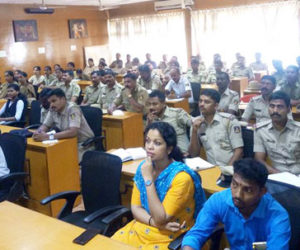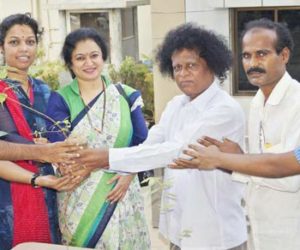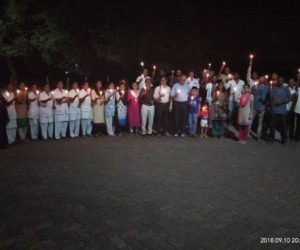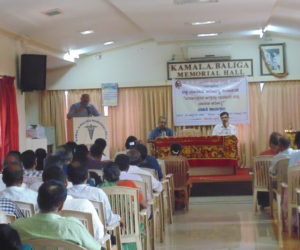Udupi, January 4, 2021
By
Ganesh Prabhu
Freelance Journalist
Forty-seven-year-old Chandrashekhar (name changed) from a village near Kundapur in Udupi district tasted alcohol in his twenties because of peer pressure as his friends cajoled him to do so. Taste, he did, thinking that it was a one-off affair. Little did he know then that he would become addicted to it and struggle to get out of it.
His romance with the bottle affected not just his health but also his relations with his family members, who had to put up with his mood swings and tantrums. His addiction became so severe that his family members admitted him to an alcohol de-addiction camp in Tumkur a couple of years ago. He thought he had kicked his addiction for good. But that remained wishful thinking. As soon he was back to his old ways and started consuming alcohol.
Chandrashekhar is not the only one, thirty-seven-year-old Ramakanth (name changed) also a resident of Udupi district, took to the bottle because of problems at his home six years ago. His addiction to alcohol was such that he got admitted to the hospital thrice for problems due to addiction and has attended three alcohol de-addiction camps in the last four years.
Despite his efforts, he could not get rid of his craving for alcohol and is now participating at the alcohol de-addiction camp at the Dr. A.V. Baliga Memorial Hospital located at Doddanagudde, about two kilometres from the City Bus Stand in Udupi.
GOVERNMENT REPORT
According to a report from the Union Ministry of Social Justice and Empowerment titled ‘Magnitude of Substance Use in India, 2019,’ over 14% of persons in the age-group of 10 to 75 persons consume alcohol. Nearly half, that is, 43% of alcohol users ‘consume more than four drinks on a single occasion’ indicating ‘heavy episodic drinking.’
A fair proportion of alcohol users experience indicators of problematic consumption such as ‘getting involved in physical fights’ after drinking (26.8%), ‘day time consumption of alcohol’ (21.2%) and ‘road traffic accidents’ under the influence of alcohol (4.1%). At the national level, 2.7% of the population (2.9 crore persons) is affected by alcohol dependence, as per the report. Hence, the importance of alcohol de-addiction camps cannot be exaggerated.
NICHE
The Dr. A.V. Baliga Memorial Hospital has carved a niche for itself in treating and helping the alcohol addicts to give up this deadly addiction. This hospital has been holding an Alcohol De-addiction Camp from January 1 to 10, every year, for the last 28 years in Udupi. The hospital charges a nominal fee of Rs. 500 from each participant, which is inclusive of breakfast, lunch, and dinner charges. It admits a limited number of participants to its annual camp on a first-come-first-served basis.
HOLISTIC TREATMENT
This camp which focuses on holistic treatment is a boon for alcohol addicts. The 10-day camp is packed with programmes for the participants. A typical day for the participants at the camp begins at 6 a.m., when they wake up, and then participate in a 30-minute Yoga session at 6.30 a.m. They have their breakfast at 7.30 a.m. This is followed by a prayer session at 8 a.m. A health checkup of the participants is conducted from 8.30 a.m. to 10 a.m. They take a half an hour’s tea break at 10 a.m.
They are provided counselling by psychiatrists and psychologists from 10.30 a.m. to 11.30 a.m. They then have to attend a session on topics such as de-addiction, anger management, stress management, life skills, and improving relations with their family members.
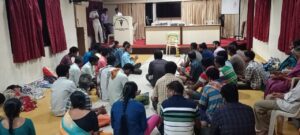
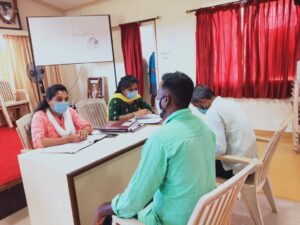
There is a lunch break from 12.30 p.m. to 1 p.m. and the participants take rest from 1 p.m. to 2 p.m. They attend a video show on the ill-effects of addiction from 2 p.m. to 3 p.m. They have a tea break at 4 p.m. They watch cultural programmes conducted by the students of nursing colleges and local cultural troupes from 4.30 p.m. to 5.30 p.m. After a 30-minutes break, they participate in the meeting conducted by Alcoholics Anonymous organization. They participate in a ‘bhajan’ session at 7 p.m., have their dinner at 8 p.m. and retire for the day at 9 p.m.
COUNSELLING
Usually on Day 5 of the camp, a meeting is held with the members of the families of the alcoholics. “It is not just the alcoholics, even their family members have a tough time dealing with the former. Hence, it becomes necessary to give counselling to them,” says P.V. Bhandary, psychiatrist and Medical Director of the hospital.
The 10-day camp includes not just treatment but also awareness talks on topics such as “Alcohol as a disease,” “Relapse – Warning signs and symptoms,” “Disulfiram and other treatments,” “Alcohol and codependency,” “Relaxation techniques.”
INTERACTION
Interaction with children of alcoholics is another important part of this 10-day camp. Virupaksha Devaramane, psychiatrist working at the same hospital and an author on several books on mental health issues, said that the children of alcoholics too are affected by their alcoholic parents.
Dr. Devaramane who has written a book on this specific issue in Kannada titled “Neenu Ontialla,” said there was uncertainty in their houses and these children live constantly in fear of their alcoholic parents.
“Most of these children start believing that they are unlucky. Some of them take responsibilities on their houses at a young age. Some start shunning responsibility. Some take to excessive cleaning and rearranging of their houses. Some become anxious and depressed. Our interaction programme focuses on these issues and their solutions,” he says.
Dr. Bhandary is ably assisted by his colleagues and fellow psychiatrists – Virupaksha Devaramane, Deepak Mallya, and Manas Elkal, along with a team of psychologists, social workers and research scholars, post-graduate students, the medical and para-medical staff of the hospital, in the conduct of this annual camp.
RELAPSE
“Inspite of participating in the de-addiction camp, the relapse rate is high. Yet the physical benefits to the participants due to the camp cannot be under-estimated,” says Dr. Bhandary.
To prevent the participants from returning to alcoholism, the hospital holds regular follow-up meetings with the participants for a year. It also felicitates those who have given up alcoholism every year. No wonder, the de-addiction camp of the hospital sees a rush of participants every year.
‘NEW RAY’
The last word on the camp goes to a participant. “I think it is my good fortune to participate in a camp like this. The hospital has made nice arrangements for us at the camp. They encourage us to give up alcoholism. I have found not just the day-long programme and treatment, but also the special talks providing me with a new ray of hope. I want to turn a new leaf and live happily with my family and friends,” says Mr. Chandrashekha

